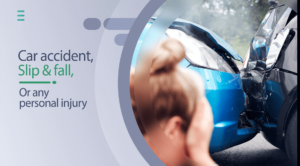If you have been involved in an accident and need money for medical bills and pain and suffering, you may be tempted by a settlement offer from your insurance company. While it can feel like an easy way out after an accident and all the stress that comes with dealing with doctors’ visits and physical therapy, there are some reasons why accepting a first settlement offer isn’t necessarily the best decision.
First Offer is Always Low
If you get a lowball offer, don’t worry. Your injury lawyer in Pickering can still negotiate with your insurance company and make sure that the settlement is fair.
Here’s what to do if you get a lowball offer:
Ask for more money. If an insurance company offers $5,000 as a first settlement offer on your case and it seems too low, ask them why they think that amount would be reasonable when it comes to taking care of all of your damages and expenses involved in this accident. It may be because they suspect there won’t be any other settlements offers coming up soon or because they’re trying to scare you into accepting their initial settlement offer without doing any negotiating. Either way—don’t just take their word for it. Make sure that whatever additional funds are needed (in addition to what has already been paid) so that everyone gets everything they need out of this agreement.
Pain and suffering is not included in the first settlement offer.
Most personal injury claims involve pain, but it’s important to remember that there are different types of pain. For example, if you were injured while skiing, your body would be sore afterward; however, this is different from the type of injury that may occur after being hit by another vehicle or falling down stairs. The difference between these two types of injuries—being physically harmed versus being emotionally hurt—are often difficult to quantify in terms of dollars and cents because they can vary greatly based on how much time has passed since an incident occurred (and whether or not additional damage has been added onto one’s body). In addition to this issue being difficult to quantify due to its subjective nature, some people may have difficulty quantifying their own emotional suffering due either directly or indirectly through secondary effects like depression after losing loved ones.
You should hold off on settling until you’ve reached maximum medical improvement.
You should hold off on settling until you’ve reached maximum medical improvement. What is maximum medical improvement? It’s when your injuries are fully healed and there are no signs that they will never heal. Once this happens, the insurance company has no reason to offer a settlement or discount because it can’t show that any money would have been spent on treatment anyway. If you settle before reaching maximum medical improvement, then the insurance company may still offer a discount—but only if they can prove that your injuries were permanent and irreversible.
Make sure you’re factoring everything into your decision about whether to accept a car accident settlement offer.
Understand what the offer is and how much it covers. Read and understand all of the terms, including deadlines and exclusions. Some offers include travel expenses as part of their total payment amount—which means that if you’re not injured but still have medical bills or lost wages over time due to your injuries (such as from having gone back on pain medication), then those costs could be deducted from your cash payout before taxes get taken out at tax time. Make sure these are disclosed up front so that everyone understands what’s happening before signing anything off on paper either way.)




